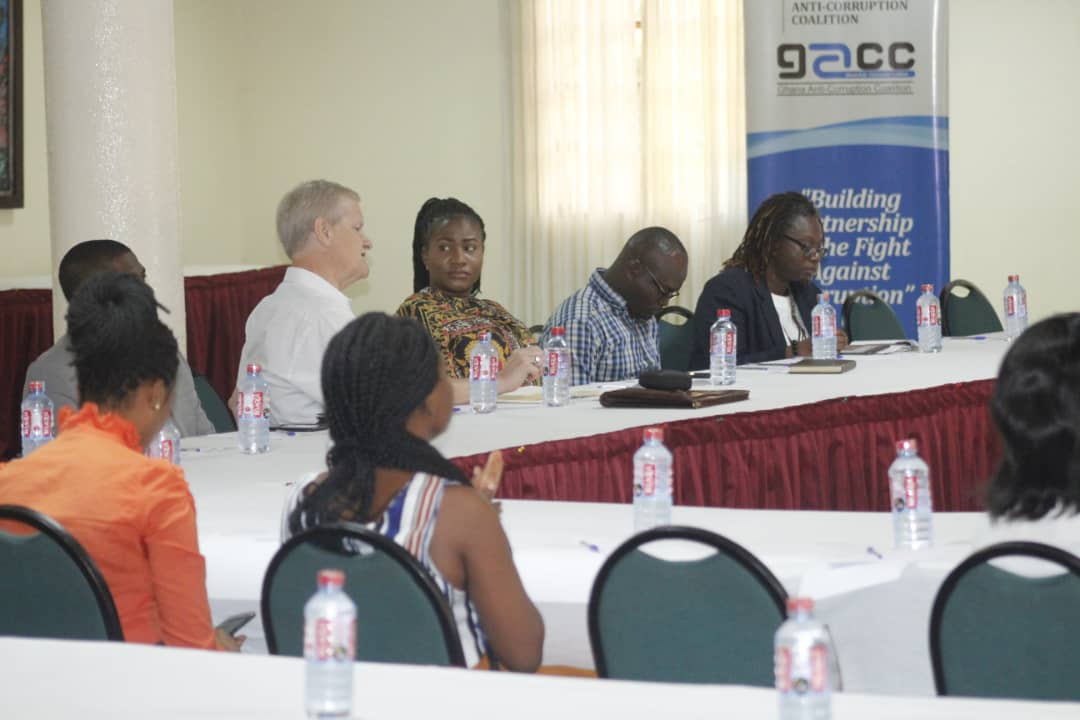The Ghana Anti-Corruption Coalition (GACC) in its quest to fight corruption has held a stakeholders roundtable dialogue on strengthening collective action in the fight against corruption in Ghana.
GACC with funding support from the Open Society Initiative for West Africa (OSIWA), implemented an activity titled: “Strengthening Collective Action in the Fight against Corruption in Ghana” with the aim of strengthening collective action in the fight against corruption with a focus on punitive measures against acts of corruption.
The Roundtable engagement brought together key policymakers and representatives from Civil Society, CHRAJ, the Private Sector and State Implementing Agencies.
One of the major strategies initiated by the Government of Ghana to address corruption is the ten-year (2015-2024) and implementation processes of the National Anti-Corruption Action Plan (NACAP).
NACAP was meant to contextualise and mobilize efforts and resources of stakeholders: government, individuals, civil society, private sector and the media to prevent and punish corruption.
As effective monitoring is essential to the success of every Anti-Corruption strategy, there is a Monitoring Committee (MONICOM) which comprises (10) representatives of IPs that monitor and track the progress of implementation of (NACAP, 2011).
In addition to MONICOM is to aid CHRAJ in their monitoring and coordinating roles as well as provide strategic policy direction and advise to implementation Committee (HiLIC) was established.
The objective of the roundtable where in two-folds; thus the Launch of the NACAP survey report and the Solicitation of commitments to address key issues and challenges in the implementation of the NACAP.
Mr. Charles Ayamdool, Director-CHRAJ and the Chairman for the program however suggested that, government should not interfere in NACAP noting that “going forward, it is necessary that we allow public services/servants to do their works to progress effectively to win the fight against corruption”.
Adding, “There should be naming and shaming policy that would see the seriousness on the implementation of NACAP by both state and private agencies”.
Mr. Micheal Adusi, Ag. Monitoring and Evaluation Officer noted GACC, initiated the study primarily to investigate the challenges of NACAP implementation in its nacre stage.
He said among other challenges are the calls for a study to unearth the deeper issues that are hampering NACAP implementation; the quest to achieve core objectives as to ascertain the level of awareness of NACAP among responsible institutions; to ascertain the structural readiness of responsible institutions to implement NACAP; examine the levels of implementation of NACAP among responsible institutions and explain implementation challenges peculiar to the public sector, private sector and civil society organizations.
Mr. Adusi indicated findings of the survey are grouped under themes: which are level of awareness of the NACAP; Level of implementation of the NACAP; structural readiness to implement NACAP; Challenges with implementing NACAP.
Revealing that, the research brought up a number of policy recommendations from the study which aims to help NACAP get back on track for the benefits of the country which includes: increase sensitization/awareness creation programs; improve implementation of the NACAP within the IPs: Discuss the funding of the NACAP; Create systems in-car get of NACAP implementation; political commitment; supervision and monitoring.
Story By: Vida Delali Gavor








